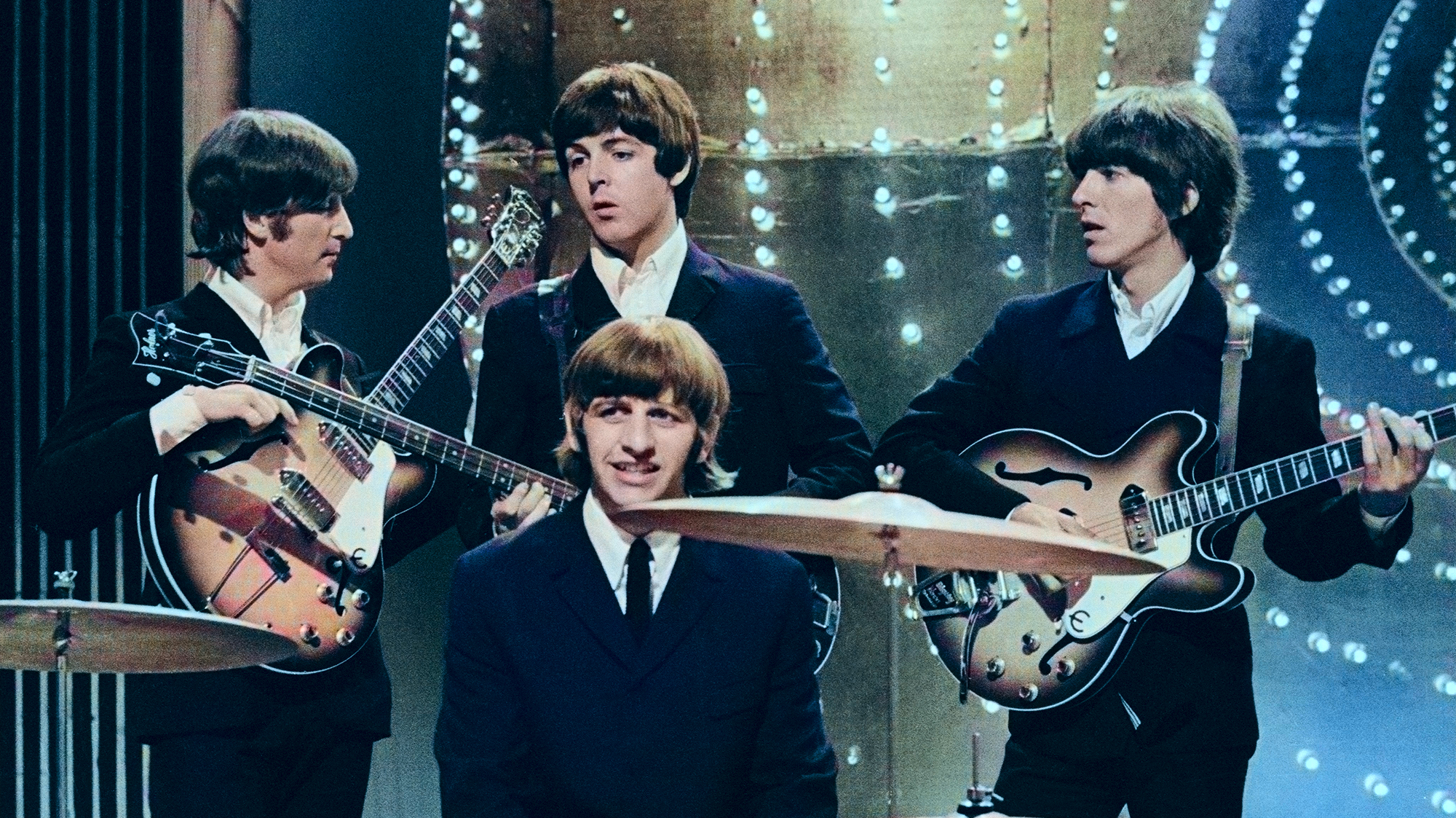Andy Summers Tells the Turbulent Tale of ‘Zenyatta Mondatta'
How the Police battled a tight deadline and vanquished label interference to make the album that would turn them into international superstars.
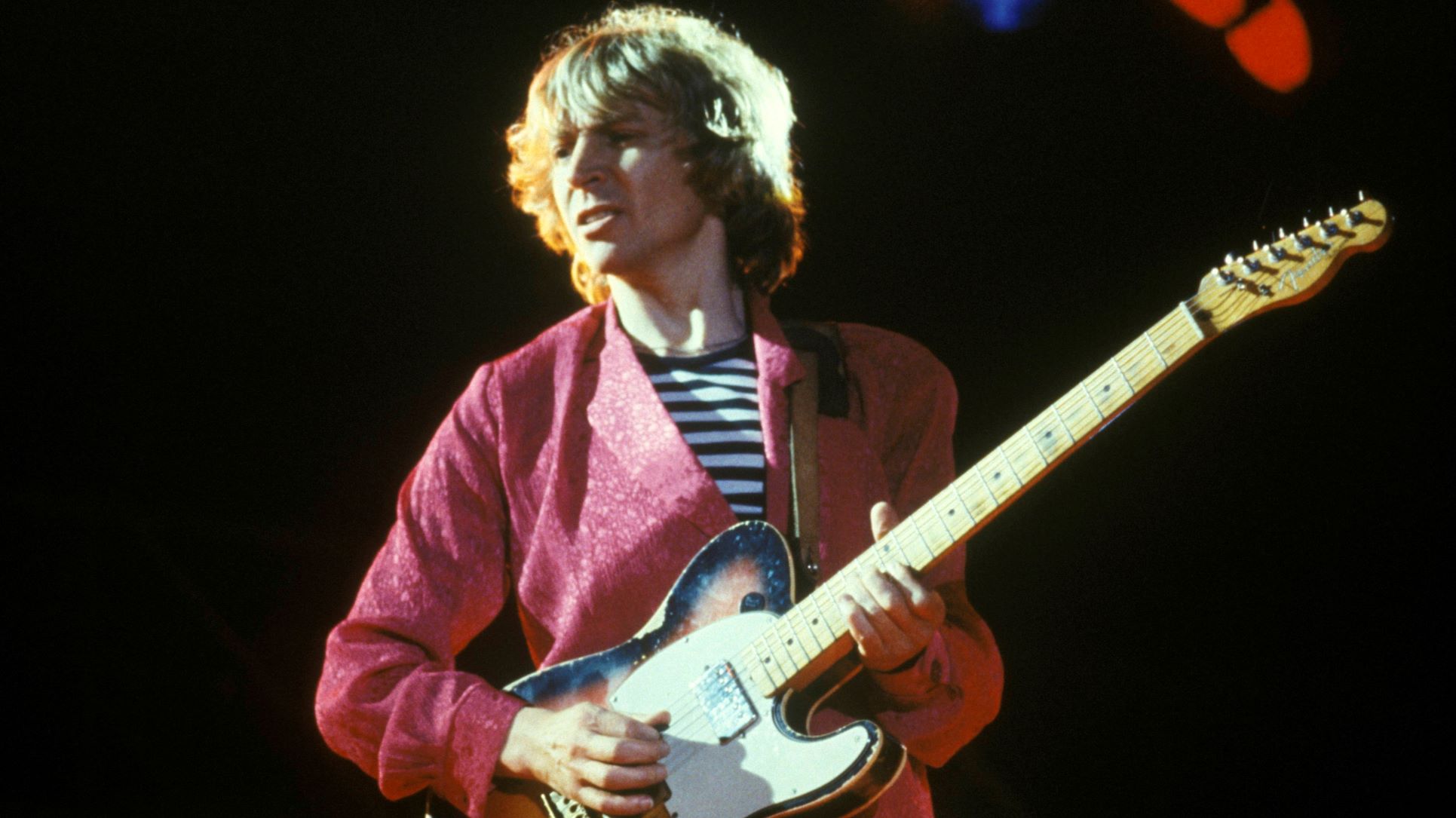
Back in the so-called glory years of the record industry, label executives often came off as some bizarre personality fusion of Stalin and Santa Claus. Recording artists would often see the benevolent side of slaps on the backs, manipulative but encouraging verbal cheerleading (“We’re gonna make you a star, kid!”) and a promotional machine that appeared to have love for their albums alone.
Of course, if an artist ever had the gumption to request an audit of their royalty account, these smiling faces would transform into fiery demons looking to obliterate their career with a scorched-earth intensity. These very same execs also loved to embrace almost superstitious truisms about “things that need to happen to create a hit act or identify a dog.”
One of these prophetic markers was the all-important third album. To understand this concept, you need to shift your consciousness back a few decades to an era when major labels actually invested in talent and sought to groom artists for success.
Typically, a record label would “carry” a band’s losses through albums one and two, but if they didn’t score significant chart and/or sales action with album three, they might be cut loose from the corporate umbilical cord, often never to be heard from again.
For the Police, that line in the sand was their 1980 album, Zenyatta Mondatta.
“It was a crazy and bizarre time,” Andy Summers remembers. “We had some good hits off of our first two albums, and we were doing well in the States, but we hadn’t broken wide open there yet. You can’t believe how much pressure there was for us to make it in America. ‘Gotta make it in America. Gotta make it in America. Gotta make it in America.’ This was yelled at us like a mantra by our manager. So Zenyatta was perceived as the possible breakthrough album.”
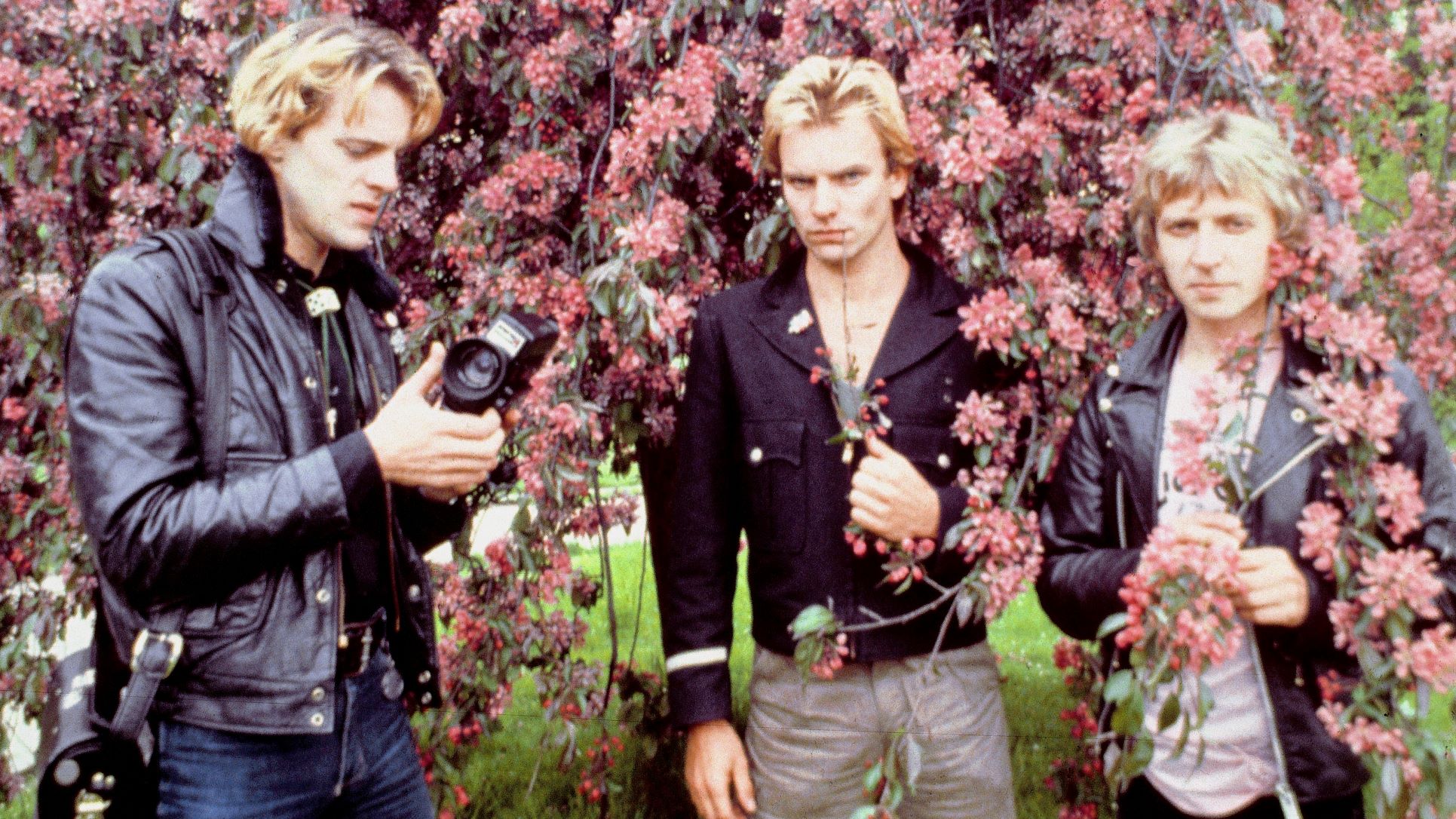
You’d think the label would have moved heaven and earth to ensure the Police had the time, support and resources to deliver a worldwide smash. That didn’t happen.
In reality, the mountain of importance being placed on the third album wasn’t exactly mirrored by long and studious preproduction and songwriting phases, or a creatively nurturing recording plan. Not that Summers, bassist/vocalist Sting and drummer Stewart Copeland were accustomed to any inflated ’70s-style rock-star treatment. The band’s first album, 1978’s Outlandos d’Amour, basically had a recording budget of near zero, which forced the musicians to grab cheap time at Surrey Sound whenever it was convenient for the studio.
“We were desperate and struggling during that first album,” Summers says. “For the most part, we would record on Sunday afternoons, when we could go in for free. We pieced the album together, recording in two-hour increments, once a week, for more than six months. But one good thing about that is we were able to improve the album as we went along. We’d listen to the songs repeatedly, and we’d abandon any tracks that we felt weren’t good enough.”
Reportedly, the recording costs reached a massively stingy level of just £2,000 (approximately $3,800 in 1978) – an incredible investment vs. return proposition, as Outlandos produced three hit singles: “Roxanne,” “Can’t Stand Losing You” and “So Lonely.”
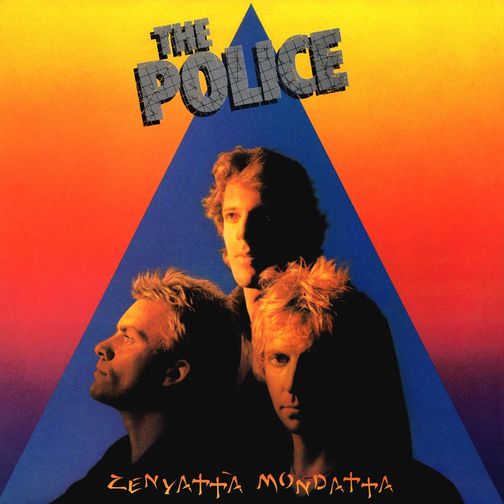
To be fair, A&M Records did see potential before the Police were set to record their second album, 1979’s Reggatta de Blanc. But they approached this opportunity by doing what record companies tended to do at the time, which was try to compel the musicians to record in a large, expensive studio with a big-name producer.
The band was having none of that. Instead, they scurried back to Surrey Sound, managed to schedule four weeks of recording over several months, and kept the expenses down to a still very miserly studio budget of between £6,000 and £9,000 (approximately $13,275 to $19,912 in 1979). Despite a lack of new songs at the ready when actual recording started, Reggatta de Blanc delivered four hit singles: “Message in a Bottle” (bearing one of the hippest electric guitar intros ever), “Walking on the Moon,” “Bring on the Night” and “The Bed’s Too Big Without You.”
It seems laughable that a band would have to approach a third album as a “make or break” situation after it clocked seven international hits, but that’s exactly what the Police were facing during the summer of 1980. Their chances of success were helped, perhaps, by a recording budget that inflated to £35,000, thanks to the efforts of co-producer Nigel Gray. But three potential storms – all caused by the band’s expanding fortunes – put a giant dent into even this benefit.
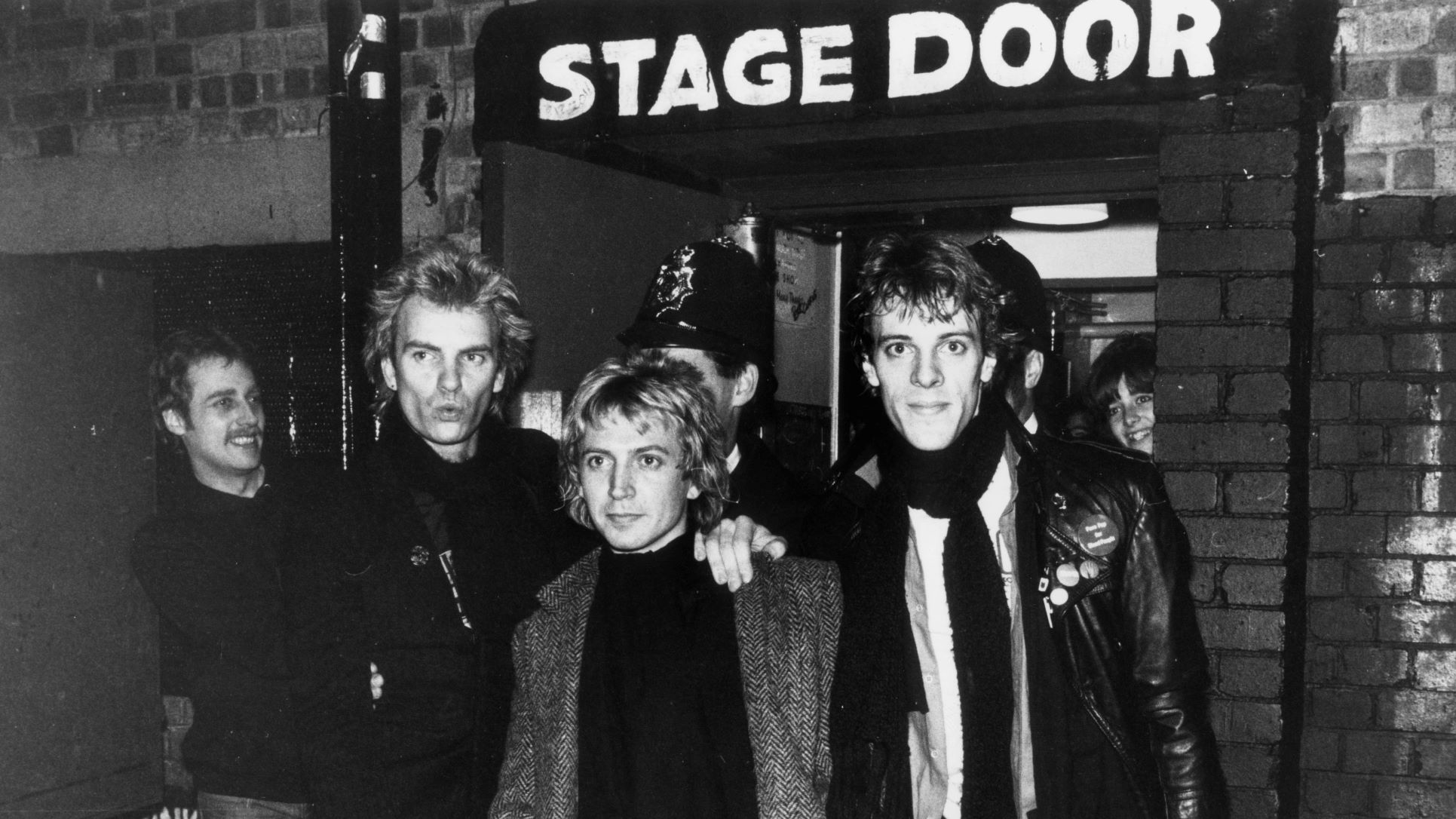
First, Summers, Sting and Copeland had to get out of town. The comfort of recording once again at Surrey Sound, their home base for Outlandos d’Amour and Reggatta de Blanc, was denied because they could not work at a studio in England for tax reasons. Their creativity was to become a tax exile at Wisseloord Studios in the Netherlands.
Second, nonstop tour commitments would leave the Police with just four weeks to record and mix the album before they would have to leave for yet another round of concert appearances.
Third, the band wouldn’t even get four undisturbed weeks, because they were booked to perform at festivals back in England and Ireland, right in the middle of their studio sessions.
This is the story of three creative musicians with their backs against the wall so many times that even the most impulsive gambler in a film-noir thriller wouldn’t bet on a happy ending for them. And yet, this trio makes its breakthrough album and becomes a legendary musical force.
Hard work pays off. Talent wins out. Miracles do happen. The gambler should have placed that bet.
You’ve pretty much said that Zenyatta Mondatta was a critically important album, and then these time and travel impediments dropped into your laps. Did those pressures affect everyone’s temperament and creativity, or did you take it in stride and get to work?
It was all pretty fraught, actually. By the time we got to Zenyatta, we were working 24/7. Then we were shipped off to this place to make the record, and we really didn’t know what we were going to do, unless, of course, Sting had some songs up his sleeve.
There was definitely outside pressure to make an enormously successful album, but that didn’t bother us much. We were like, “They want hits. What are they talking about? Almost everything we do is a hit.” [laughs] Once we started recording, the sessions were going well, but in the third week – in the heat of making the album – we were taken out of the studio for a week to do these stupid festivals.
Did you wonder, “So how important is this album for our career if they’re pulling us out of the studio for a gig?”
Sure. Of course. But the truth was, as a band, we were so into recording the album. We were still riding that early rush of big success. We were ferociously playing all the time. Seven nights a week. We were completely together, super tight and really into our thing. We weren’t messing about. We knew how to make any song sound like the Police. We had it down by Zenyatta, and we could make a great record really fast. We’d proven that before.
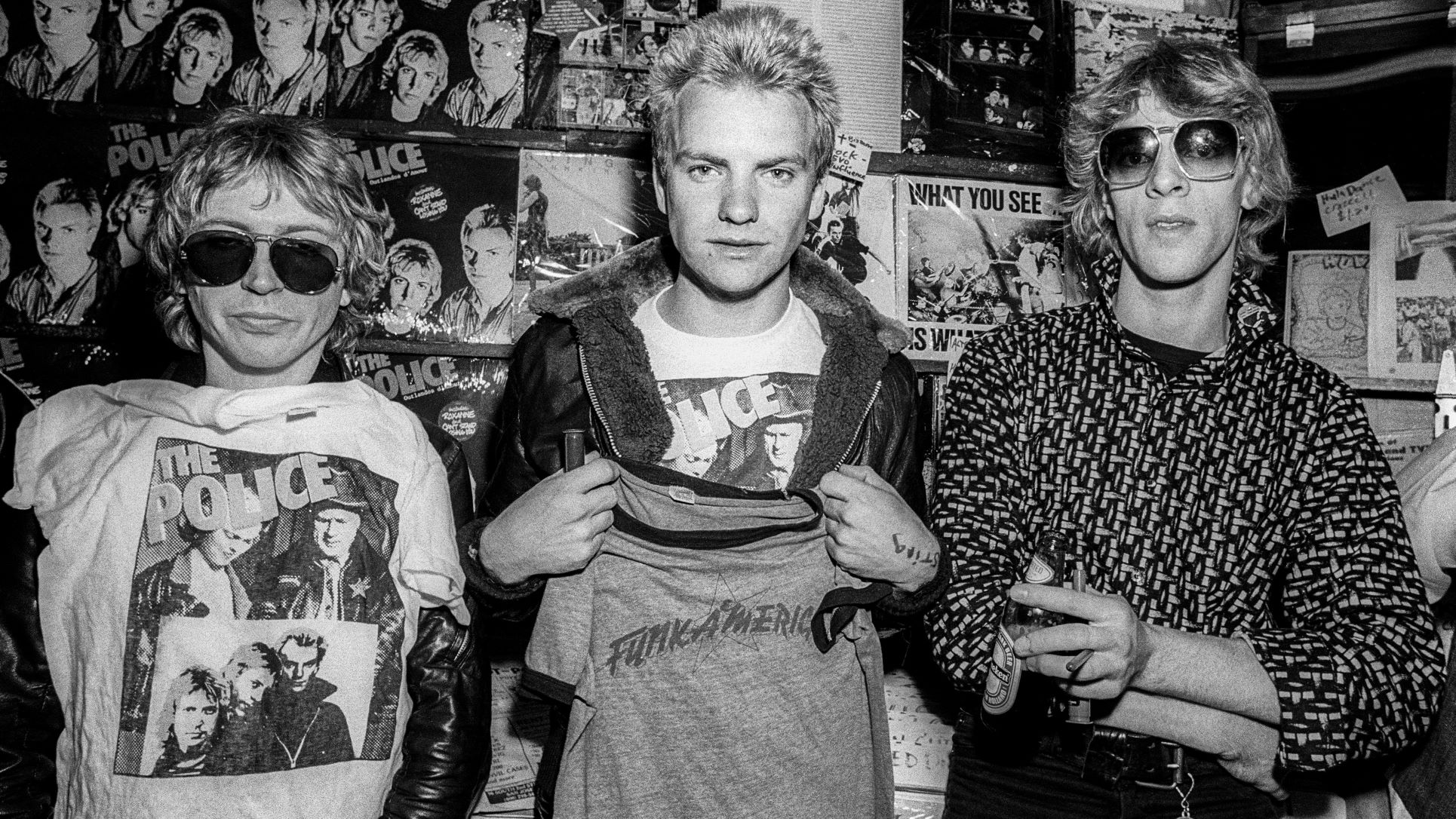
Back in those days, however, whenever an album was viewed as a potential hit, the record company’s A&R people often jumped into the mix. There would be all these suggestions for the artists, such as, say, “There’s a number-one song right now that has a backward acoustic guitar sound, and we really need that on your record.” How much label interference did the band have to deal with?
Well, none. I was very jealous about making my parts sound like me. I wasn’t ready to be instructed. [laughs] The record companies always wanted you to sound like something else that had been a hit. I think that has been the way it is since the beginning of record labels. In any media – music, movies, whatever – you tend to have squares running the scene.
Let me give you a classic example from the early Police days. The second track we put out was “Can’t Stand Losing You.” We did our mix, and we presented it to the record company. But their attitude was, “All right, boys, we’ll take it over from here. We’ll remix this and make it a hit.” Their thought was that we couldn’t do that. What did we know? We were just kids.
So they took the track to five different engineers and producers, who tried to remix what we had already done. In the end, they gave up and admitted, “Your mix is the best.” And, you know what? They never bothered us again. Ever. They trusted us. The label’s attitude after that was, “Don’t fuck with the magic.”
At least they were smart enough to realize that.
Yeah. They woke up pretty quickly to have a “Just let them do it” approach. But to put this in greater perspective, it was the peak period of the recording industry, and the executives tended to be very invasive. They wanted control. And at first, they couldn’t believe these three young kids didn’t need to be guided to success.
It also probably drove them mad that we were producing our records. But, miraculously, they realized they shouldn’t mess with this magical little band that was having hit after hit all over the world. That was almost unheard of at the time.
How did the three of you work together to create the tracks for Zenyatta Mondatta?
Obviously, Sting is the main songwriter. But what makes these tracks what they are is the way the three of us play together – the sound of the band. It’s another one of those classic music-making things, really. A guy has a song, and what you end up with doesn’t sound remotely like what you started with.
Yes, the songwriter is well represented, but with a good band, you also have the chemistry of the guys who made the thing. I think what makes Police music so unique, and what makes it still hold up today, is that each of us was very aggressive about how his part would go. All Police tracks are the products of tight compromise, because we were very intense about searching for a different sound. In fact, if we had any political stance, it was not to sound like anyone else.
But you were also a band that produced a lot of hit songs. Did any commercial pop strategies enter into the creation of your records?
The whole thing is kind of miraculous, because we never thought, ‘How can we make a hit?’ All we had to do was be the Police.
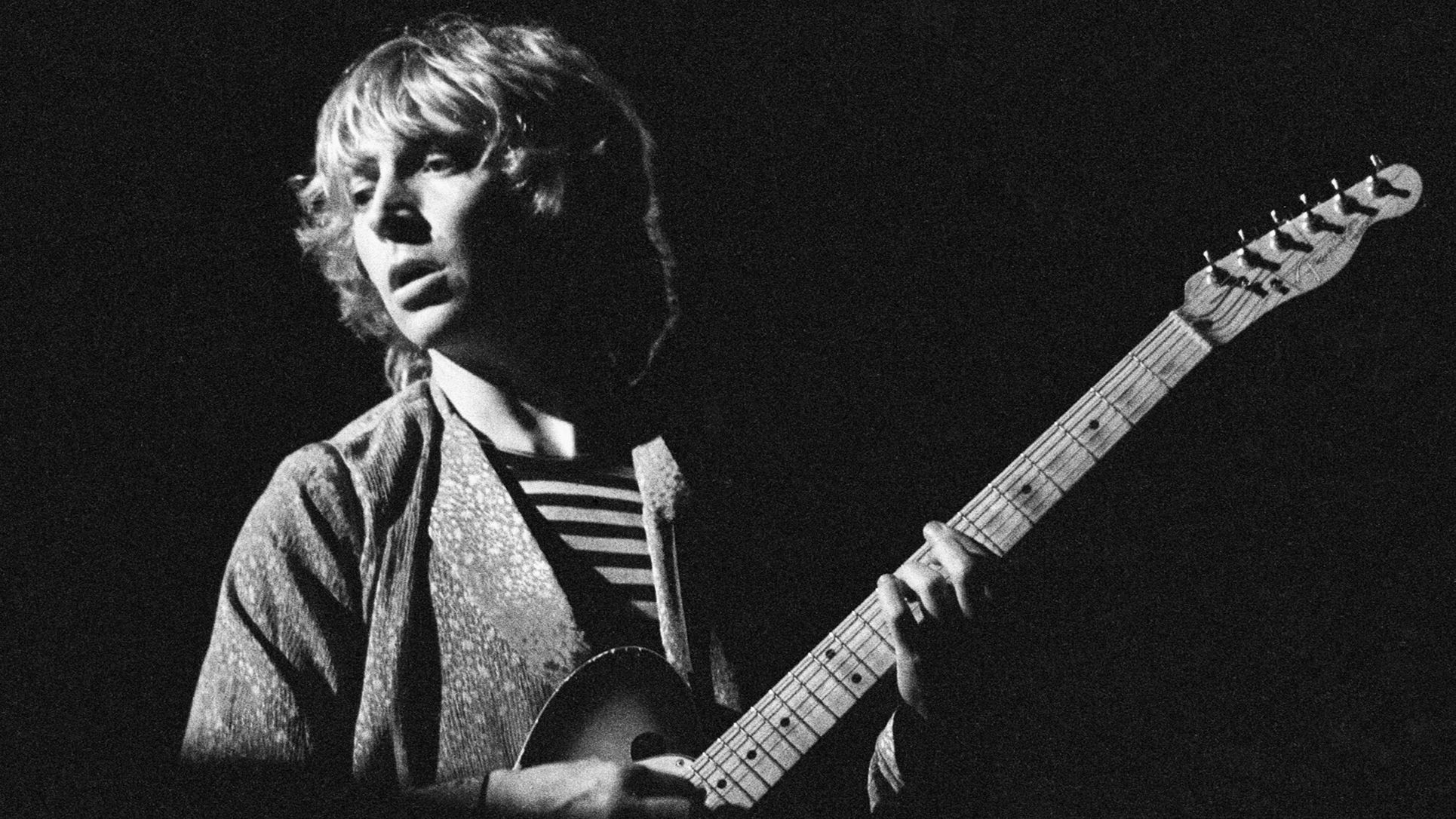
When Sting showed you and Stewart his songs for Zenyatta, and you two did your thing and added your own bits to the tracks, did he ever get ruffled and say something like, “Hey, that wasn’t how I was envisioning this song. Why are you messing with it?”
No, no. He would get it immediately. He’d say, “Now, it’s sounding like something.” He was fine with providing the bones and letting Stewart and I help put some flesh on it and build it into a body. It’s like taking a sketch and bringing all the color and brushwork to it. You add all these other elements and the song becomes larger than life – which is what we were always looking for.
And, don’t forget, Sting was involved in this whole process, as well. He didn’t hand the song to us and disappear. He was part of the band chemistry that defined the Police. And because we were always playing together, we almost automatically knew the moves that would make a song sound like our band. We got really good at that.
Can we play a quick word-association game with some of the songs on Zenyatta Mondatta? Could you give me one sentence about “Don’t Stand So Close to Me”?
A cute little guitar riff – sort of a rip-off of “Rock and Roll Woman” by Buffalo Springfield.
“Driven to Tears”?
There’s a strong political message in the lyrics that has held up through the years, and it’s fun to play.
What about “When the World Is Running Down, You Make the Best of What’s Still Around”?
I think Sting demonstrated it to Stewart and I on acoustic guitar with these C9, D9 and Am chords. Very simple stuff. When I got ahold of it, I played things such as a G11 and an Am11 through chorus and echo. Then Stewart added his stuff and the song went to a whole other place. It’s also a classic example of a trio with three distinct parts working together to create a whole.
“Canary in a Coal Mine”?
That was a big rhythm part. I remember it was sort of difficult to get down. I don’t actually listen to this stuff ever, by the way. Just so you know. I think people assume you sit around and listen to your old records all day long.
Understood. Let’s just stop. But I am curious about the almost comedic situation around your song, “Behind My Camel.” Sting hated it, refused to play on it and allegedly buried the tape so the track couldn’t be completed. Stewart seemed indifferent. It certainly isn’t a pop song, but it balances the material on Zenyatta Mondatta quite nicely, and it’s a brilliantly moody instrumental. Why all the agita?
Typical band stuff, I guess. I liked it. I was always much more interested in weirder stuff, and the commercial hit songs always seemed to come out of Sting anyway. But we didn’t have enough songs to fill the album, and I had this “Behind My Camel” thing. I said, “How about doing this, then?” And Sting said, “I’m not playing on that!” I actually believe he did bury the tape in the garden. [laughs] Stewart was actually up for working on it, so I just played the bass.
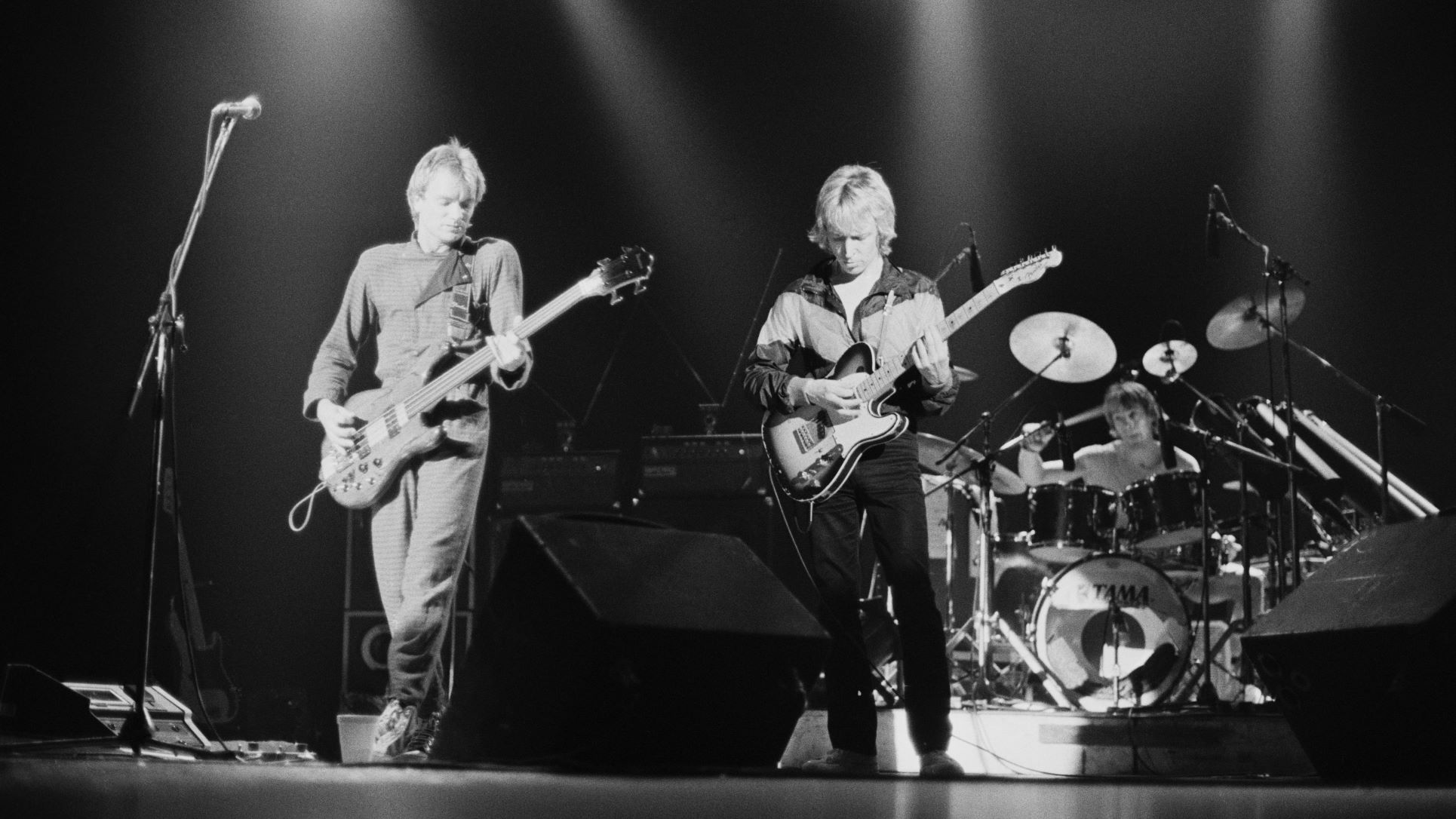
I’m assuming it was Sting’s bass you used for the track?
Yeah. I’m sure it was.
Did you plug direct into the board or go through his amp rig?
Playing direct through the desk was probably a move that was more sophisticated than we were at that point. I imagine that I played the bass through Sting’s rig.
Did anything in particular inspire the bass line?
Everything was moving so fast in the studio that I doubt I had time to think about it very much. I probably just got the bass in there with the kick drum.
When the song went on to win the 1982 Grammy Award for Best Rock Instrumental Performance, did you allow yourself a bit of laugh at Sting’s expense?
Well, obviously, I loved the irony. I’m sure there was some smug self-satisfaction. See? I fucking told you!
The pop-culture mythology about Zenyatta Mondatta is that you, Sting and Stewart didn’t really love the album, even though it finally broke the band big in America and served up two top-10 singles, “Don’t Stand So Close to Me” and “De Do Do Do, De Da Da Da.” Is this alleged dislike myth or truth?
There’s some truth to it. Sure. I can only speak for myself, but I think Zenyatta Mondatta might be remembered more for how everything was so crazy at the time we recorded it. We were becoming the hottest band in the world, and with all the resulting demands and expectations. The studio time being shortened by the festival gigs and having to worry about leaving for an imminent tour certainly didn’t help.
For example, we had mixed the entire album before leaving for the festivals, and when we came back to the studio, we listened to the mixes all over again, and we thought they were shit. What could we do? We remixed every song on the album in one night. Then we left for the tour early in the morning. I remember as we were leaving, we thought, Oh well. We’ve probably blown it.
Click here to buy Zenyatta Mondatta.
Get The Pick Newsletter
All the latest guitar news, interviews, lessons, reviews, deals and more, direct to your inbox!
"When they left town, I went to the airport and got to meet Ritchie, and he thanked me for covering for him." Christopher Cross recalls filling in for a sick Ritchie Blackmore on Deep Purple's first-ever show in the U.S.
"It’s as if all of Jeff Beck’s genius is right here on one album. There’s a taste of everything.” Joe Perry riffs on Beck, the Yardbirds and "The 10 Records That Changed My Life"










